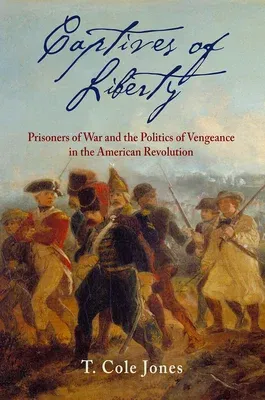Contrary to popular belief, the American Revolutionary War was not a
limited and restrained struggle for political self-determination. From
the onset of hostilities, British authorities viewed their American foes
as traitors to be punished, and British abuse of American prisoners,
both tacitly condoned and at times officially sanctioned, proliferated.
Meanwhile, more than seventeen thousand British and allied soldiers fell
into American hands during the Revolution. For a fledgling nation that
could barely afford to keep an army in the field, the issue of how to
manage prisoners of war was daunting.
Captives of Liberty examines how America's founding generation
grappled with the problems posed by prisoners of war, and how this
influenced the wider social and political legacies of the Revolution.
When the struggle began, according to T. Cole Jones, revolutionary
leadership strove to conduct the war according to the prevailing
European customs of military conduct, which emphasized restricting
violence to the battlefield and treating prisoners humanely. However,
this vision of restrained war did not last long. As the British denied
customary protections to their American captives, the revolutionary
leadership wasted no time in capitalizing on the prisoners' ordeals for
propagandistic purposes. Enraged, ordinary Americans began to demand
vengeance, and they viewed British soldiers and their German and Native
American auxiliaries as appropriate targets. This cycle of violence
spiraled out of control, transforming the struggle for colonial
independence into a revolutionary war.
In illuminating this history, Jones contends that the violence of the
Revolutionary War had a profound impact on the character and
consequences of the American Revolution. Captives of Liberty not only
provides the first comprehensive analysis of revolutionary American
treatment of enemy prisoners but also reveals the relationship between
America's political revolution and the war waged to secure it.

